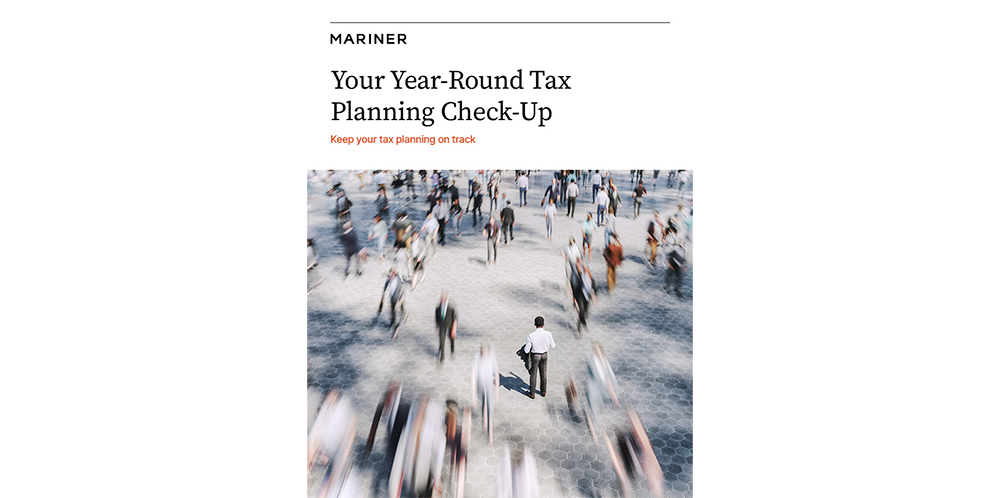Strategies for Helping Employees Weather Market Volatility

With ongoing market volatility negatively impacting your employees’ 401(k) balances, educating them on maintaining a long-term investing perspective is more important than ever.
Encourage Employees to Stay the Course
Given that market gyrations might unsettle even the most seasoned investor, consider this volatile market climate an opportunity to help employees view the recent downturn through a long-term lens.
Discourage Market Timing
Plan participants who are particularly anxious about current market volatility and how it will affect their retirement goals may be tempted to sit on the sidelines until the market rebounds.
Consider this an opportune time to remind your plan participants that time in the market is a better predictor of investment success than timing the market. In your regular communications with employees, stress the importance of sticking with their well-thought-out investment strategy. Emphasize that being out of the market for even a short amount of time could cause them to miss some of the market’s best days and potentially forfeit growth in their retirement investments.
Tailor Your Message to the Timeline
Because your employees are at different points along their journey to retirement, think about tailoring your message to each age group’s concerns and goals.
Younger Plan Participants
Acknowledge that they may not have experienced a prolonged period of market volatility or inflation since they began investing in your company’s 401(k). By educating them that historically, market swings have occurred and will continue to do so, you’ll be providing valuable perspective. Consider sharing historical data to support your advice.
Mid-career Employees
Encourage them to invest the maximum amount allowed in their 401(k), as well as make catch-up retirement plan contributions if they are age 50 or older. To help them track their progress, plan participants can also use tools such as free online calculators.
Near-retirees
This group has less time to recoup market losses. It is an opportunity to assess risk tolerance and align appropriate asset allocations in a portfolio. A target-date series where the asset allocation shifts from higher-risk/higher-reward investments such as growth funds to lower-risk/lower-reward investments like highly rated bond funds may be appropriate as these employees approach retirement age. You also might consider Mariner Wealth Advisors Managed Accounts.
Our retirement plan solutions team can assist in creating a comprehensive retirement plan strategy tailored to your employees’ unique savings, investment and retirement income needs.
Consider These Strategies to Keep Employees Engaged:
- Promote the educational tools offered by your 401(k) provider, which could include advice call centers or other financial wellness options, such as in-person and virtual one-on-one consultations to answer employees’ questions.
- Communicate with employees using different media, such as email and text messaging, in simple language the “average” person can understand. Avoid investment jargon.
- Expand your plan offerings if necessary to increase the diversity of your investments.
- Connect with employees regularly, regardless of the economic and market backdrop, with a goal of building trust and confidence with them.
Plan Participants Stayed Invested in the First Quarter
According to a recent study covering more than 35 million defined contribution plans, in first quarter 2022, plan participants stayed the course and didn’t change asset allocations. Plus, levels of hardship withdrawals remained low.1
Given the recent significant market volatility, frequent communication with your plan participants is critical to helping them shut out the short-term noise and stay focused on their long-term retirement goals.
We’re Here to Help
The Mariner Institutional team can offer your plan participants in-person group meetings, webinars or one-on-one meetings to help them improve their retirement outcomes.
Sources:
1 “401k Participants Stay Focused During Recent Turmoil”
This article is limited to the dissemination of general information pertaining to Mariner Wealth Advisors’ investment advisory services and general economic market conditions. The views expressed are for commentary purposes only and do not take into account any individual personal, financial, or tax considerations. As such, the information contained herein is not intended to be personal legal, investment or tax advice or a solicitation to buy or sell any security or engage in a particular investment strategy. Nothing herein should be relied upon as such, and there is no guarantee that any claims made will come to pass. Any opinions and forecasts contained herein are based on information and sources of information deemed to be reliable, but Mariner Wealth Advisors does not warrant the accuracy of the information that this opinion and forecast is based upon. You should note that the materials are provided “as is” without any express or implied warranties. Opinions expressed are subject to change without notice and are not intended as investment advice or to predict future performance. Past performance does not guarantee future results. Consult your financial professional before making any investment decision.
Mariner is the marketing name for the financial services businesses of Mariner Wealth Advisors, LLC and its subsidiaries. Investment advisory services are provided through the brands Mariner Wealth, Mariner Independent, Mariner Institutional, Mariner Ultra, and Mariner Workplace, each of which is a business name of the registered investment advisory entities of Mariner. For additional information about each of the registered investment advisory entities of Mariner, including fees and services, please contact Mariner or refer to each entity’s Form ADV Part 2A, which is available on the Investment Adviser Public Disclosure website. Registration of an investment adviser does not imply a certain level of skill or training.
